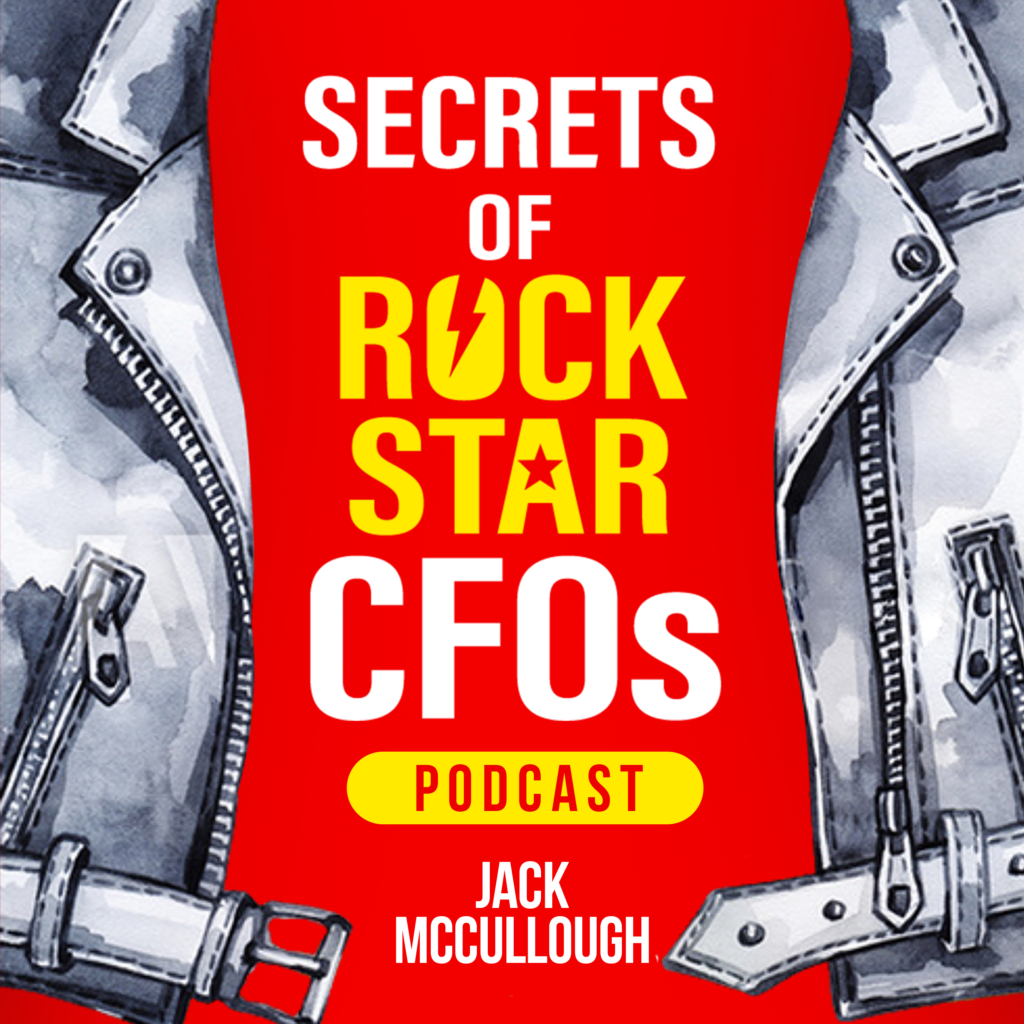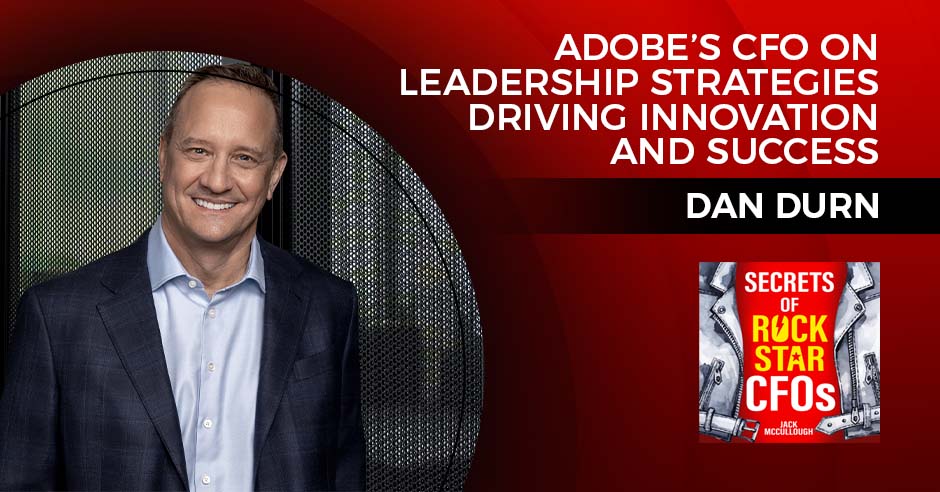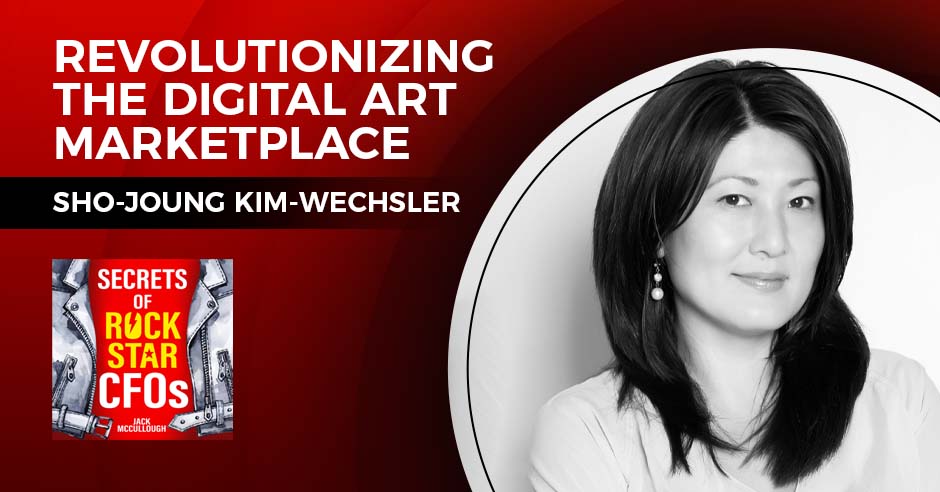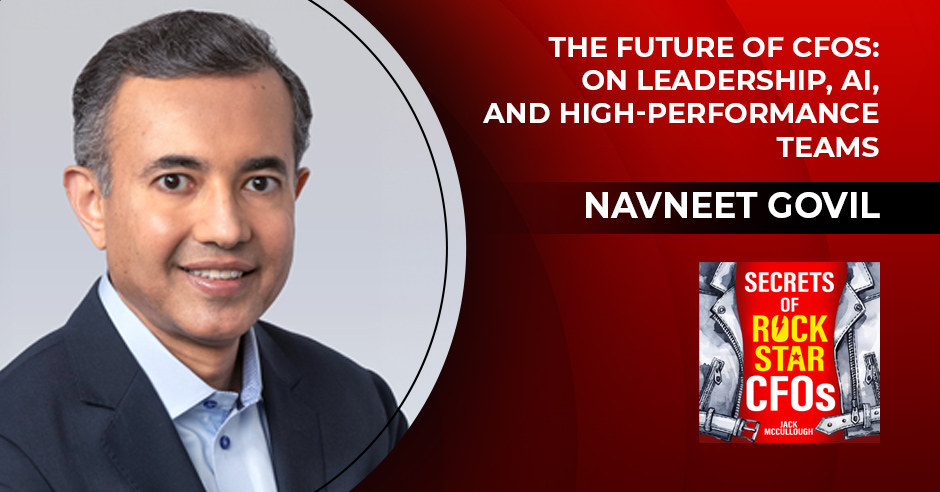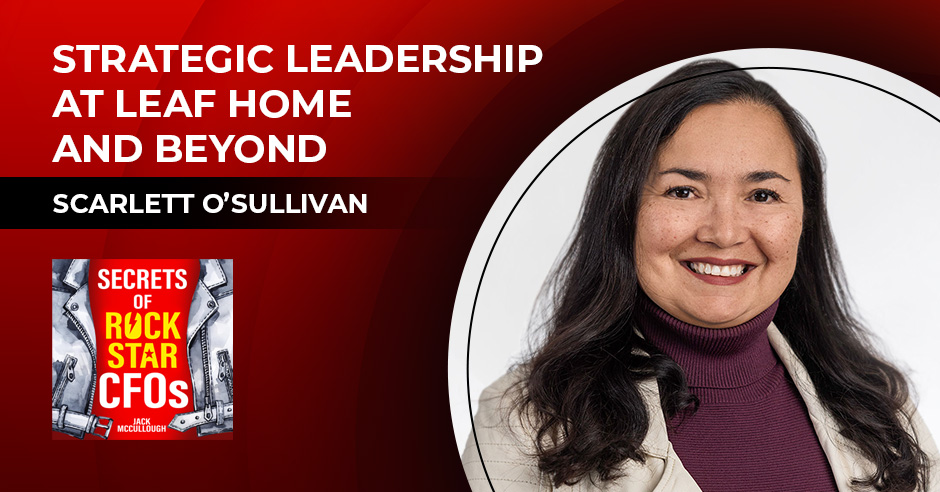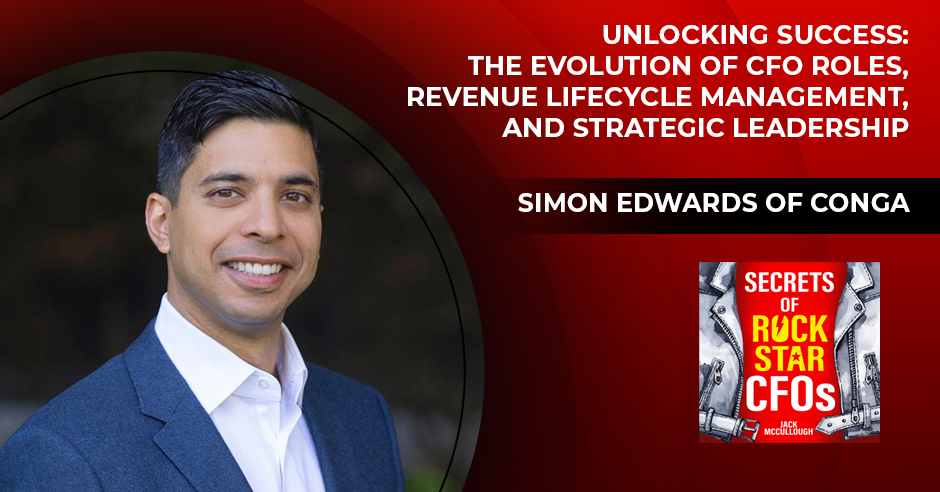While Sho-Joung Kim-Wechsler was finding success in her finance career, with roles at Deloitte, PwC and more, she knew her true passion was in the art world. Now, as the founder of XVERSO.IO, a premium digital art marketplace, Kim-Wechsler lives in the intersection of art, technology and business.
Transitioning to entrepreneurship comes with its own challenges. In this episode, Jack McCullough sits down with Kim-Wechsler to discuss how her finance background informs her decisions as a small business leader, the tricky balancing act of risk and how XVERSO.IO is revolutionizing the art marketplace.
Listen by clicking below. The Q&A, lightly trimmed and edited for clarity, follows.
—
Listen to the podcast here
I’m excited for our guest, someone I deeply admire because she actually got off the CFO path to pursue her dream in the art world. Her name is Sho-Joung Kim-Wechsler. Welcome to the show.
Jack, I’m so excited to be here with you. Thank you so much for inviting me. It’s a huge honor.
It was many years ago when we first met, and you’ve definitely had a different path. One thing, and I normally don’t mention our YouTube channel, but I’m going to in this episode, if only because you have the best Zoom background that I’ve seen. It’s worth going and watching this video. I know most people are reading. If you get a chance to check us out on YouTube, it’s a pretty cool background. I would guess approximately none of my readers are familiar with XVERSO. What can you share about your company from the 10,000-foot view?
XVERSO is a premium art marketplace for digital art where people can discover incredibly amazing artists, but they can also purchase the art. We also started our services for installations and creating specific installations for offices, for casinos, as you can see in the background that I have right now, among many others. It’s all about transcending digital and physical spaces. Digital art is a new medium. A lot of people are very curious. They want to learn more about it, but they’re very unfamiliar. We are trying to bring digital art closer to everybody.
That’s certainly a noble goal. We’ll definitely get into that in a moment. Before we do, I always like to chat with our guests about their informative years. Where did you grow up?
We could probably do an entire episode on where I grew up. I’m Korean, obviously, from the way I look, but I was born in Germany. My parents were immigrants to Germany. I spent my life there, my youth. I studied business and economics in Germany and then moved to the United States. Initially, it was supposed to be two years in New York. It turned out to be many years after, and I’m still here.
That was with Deloitte, as I recall.
That was with Deloitte.
It’s interesting you mentioned, you’re Korean, but you spent your childhood in Germany. I know there’s a robust Korean population in Germany right now, but was that the case when you were a child?
I wouldn’t say robust. I think it’s a couple of thousand Koreans, not a very big minority. It was very different. Let’s put it this way. There were not many Korean immigrants in Germany at the time.
Yes, but it has grown since then. That’s my understanding.
Yes, it did.
I always like to ask, did you have brothers and sisters?
I do have two brothers.
Are they still in Germany?
Yeah. They live in Berlin.
What was your first job as a child?
Jack, that was a tricky question because I did a lot of jobs. One of the interesting ones was I was working at the local fair to sell fried champignons. It was about fried mushrooms. I don’t even know if I legally was allowed to work at the time. I was still in high school, very young, and I was saving money for my driver’s license or something like that. It was a lot of fun. I loved selling fried mushrooms. I enjoyed it so much.
That’s a question I ask a lot of the guests and about nine out of 10 tell me their first job had something to do with food. Most of them, all but a handful of my guests, their childhoods were spent in America. A lot of them worked at McDonald’s or Wendy’s or someplace like that, but yours is a little more interesting than that.
I worked at McDonald’s, too, by the way.
It’s almost like you have to work at McDonald’s at some point in your youth. It’s like a law somewhere somehow. You studied business after undergraduate, but at a young age, you knew that you loved art more than business. Can you talk about that decision a little bit?
I’ve been asked a lot of times, “Why did you move into the art industry? What is it about art that you like so much?” I would get this question so much and I was thinking about it intensively and thought about when it was my first encounter that I knew art was the place to be. I remember one of my first impressions from kindergarten. It was a poster of Pablo Picasso’s Girl with a Dove, his daughter Paloma.
I remember the time, while the kids were playing outside on the playground, I was standing in front of this picture and studying it. I was moved by the colors, by the light, by the animals, by the dove. I love animals. For me, this was such an enlightening moment where I realized this is something that speaks to me. It was very vivid for me. I have a lot of memories of it and associations. I realized I do enjoy looking at the world from a visual perspective.
You studied Business undergrad.
It’s changed now, but at the time, we didn’t have the undergraduate-graduate differentiation. After high school in Germany, you have to decide which path to go and then you’re set. After high school, I set out to go into business and economics.
A little different, but again, you eventually found your passion in that. You started your career in Deloitte and that’s what brought you to the United States.
That is correct. I always like to quote Simu Liu, the famous actor who was the first Asian Marvel hero. He was fired from Deloitte in his first year. That motivated him to follow his acting route. Honestly, I wish Deloitte would have fired me in the first year because then I would have been closer to art much faster. At the time, unfortunately, they didn’t fire me. It took me a longer time to get back into the art industry.
It’s funny to want to be fired, but I’m sure at 22 and having bills and things like that for the first time in your life, you probably weren’t trying to get fired.
Of course, at the time, when you look back in hindsight, of course, it would have been a disaster. You would have the expectations from your family, everyone would have been, “She got fired.” I believe that the failures you have, or what you perceive as failures, or the bad moments are actually the ones you learn from the most.
Are you familiar with a comedian named Bob Newhart?
Not really.
He’s probably in his 90s right now. He’s iconic amongst American comedians, but he was actually fired from an accounting job. People thought he was funny and he went out and did the equivalent of like a standup routine, like an open mic type of thing. Apparently, he killed it and never looked back. He was similar to the reference you cited in that had he not been fired, everything would have been different for him. Probably worse because I’m sure he led a great life as a comedian.
You went to Deloitte and then PwC, and you had a couple of jobs. You and I met when you were at 1stDibs, if memory serves. Things started to come together. You left 1stDibs to go to a company called Artsy. Personally, I’m not confused at all as to why you were drawn to Artsy, having known you for a while now, but tell us a little about what Artsy was and why you made that move at that point in time.
Thank you for pointing out that we met. I remember exactly the day we met, in the summer in New York. Thank you for reminding me of that. It was more by chance than anything else. I felt like it was already an incredibly cool experience because I learned so much about online marketplaces. As a finance person coming from a private equity background, M&A, transaction, accounting, finance and then private equity, one, I had zero operational experience, and two, I had no technical experience with econ platforms. I learned a lot with 1stDibs and David, the CEO.
It was a fantastic time. I knew I wanted to go into contemporary art, which is my passion. Artsy came away and I was drawn by the mission and vision of the founders at the time. I thought it was very small. There were about 40 people, but I thought it had huge potential because it had this incredible vision of conquering the world with art and making art accessible for everybody with online access. I loved that about Artsy. Artsy had a lot of different types of touch points because it was obviously working with galleries and museums with auction houses. It was very interesting to be there at the time.
It must have been, like for you, as close to a dream job at that point in your career as you could possibly have had.
It was the absolute perfect combination of art, finance and technology. I have to admit that, yeah, it was wonderful.
Forgive me for not knowing this, but is Artsy still around or did they merge with somebody?
No, they’re still around. I think they’re doing well. They continue to exist and they’ve grown a lot.
In one of our early conversations you mentioned you had a desire to bring art to Silicon Valley. You mentioned that there’s a need for it and an appetite for it. Tell us a little about that, like what inspired that desire? Obviously, it worked out for you.
It was very interesting because when you’re in New York City, obviously you have arts and culture all the time. Same thing for Boston, where you’re from. It’s not imaginable to have a life without art. You enter an office and you have an incredibly beautiful art piece in the lobby. People care about art, but it’s interesting to see that this is not applicable to the majority of people in the world. I lived in a very tiny niche environment with a community of very focused art people, art professionals and art lovers in New York City, where you have the largest number of galleries in the world. I quickly realized when I left New York that this is not how the majority of people in the world actually function.
It was interesting to learn about that and leave my little bubble where I was in. It was very artistic and people care about a lot of crazy things that normal people don’t care about. I left that by accident because my husband got relocated to Silicon Valley. I was still working at Artsy at the time, but I wasn’t sure what I was going to do next. I wasn’t ready to retire or anything like that. I love my job. I love working. We realized this is a community that does not have the same type of art culture that New York has. What can we do to get them excited about art?
You mentioned art is no longer oil and canvas. Art in the 2020s is largely influenced by technology. Is that fair to say?
I would say it this way. There’s still a very large group of people who are very skeptical about digital art. At the same time, you have so many artists that, even if they are traditional artists, have moved on to a technology medium because they realize we can create experiences and spaces into actions in ways that we cannot do with acrylic on canvas, for example, or oil on canvas. It’s not a new medium in the sense of art history because technology-driven art existed since technology started developing with humanity, but it was always a very tiny niche of a niche of a niche group.
Through blockchain innovation, for example, and the huge hives during COVID, people started paying attention to digital art and digital creators. It was a very interesting move. While maybe not every result of it is something that is positive, overall, the innovation has been made and people are aware that there is a concept such as digital art that exists and there are people who collect it.
Here’s a question I never thought I would ever ask anyone, but since Picasso was so inspirational to you, what do you think he would think of the modern movement? He was a guy that he was known for being on the cutting edge.
I had a similar conversation on a different type of interview. The question was, what would these artists do now? They were visionaries and innovators, defined their genres and created new genres. Picasso obviously was laughed at when he created his cubic images. Cubism was an insult to this artist. The critics were laughing at him. Everybody was laughing at him.
I think that a lot of the artists at the time, because they wanted to drive something that was different, defining a genre, defining a new medium, they definitely would have explored technology as a new angle and a new vehicle because they were not interested in mainstream art. They were not interested in taking some portraits for commercial purposes, they were focused on defining their own genre and defining their artistic style and skills. I think that many artists, if they lived or were active now, would work with digital medium, even like Hockney.
When you think about Hockney, he’s one of the most important contemporary artists now. He created a series on iPad. It was drawings on iPad. It was pretty revolutionary. I think that digital medium is at the beginning of development. It will become more and more relevant. Now, we’re starting to also create ways. Technology is so advanced now that we can create alternative realities, we can create metaverses. I think it’s the beginning of digital art in many ways.
I have a niece who’s studying Modern Design at RTI and she’s a junior. She finished her junior year, and entering her senior year, and the field has changed dramatically from when she started. It’s interesting because she’s created some infographics for me and she’s done what we might consider an old-school way of doing it. She interned for me, but since then, we’ve done some that are more without AI type of technologies.
Hers does resonate with the audience a little bit better than the computer-generated stuff. It’s not that they are better or anything like that, but it’s people like, they can see hers and recognize that it was probably done by a human being versus being done by a computer. We’re still at that point. People think they like it. They prefer that.
I do agree with that because when you think about AI-generated art, I mean, there’s always like this tiny thing that makes it look not human. I think that’s also specific to AI and where it is . Aside from AI, there are so many other technology forms that you can create works from digital illustrations to iPads to algorithms to create art. There are so many different ways and how to create digital art.
It still has a way to go. I was on ChatGPT and I loaded my wife and my wedding photo and asked them to make a cartoonized version of it. They gave my wife a beard. I know you’ve never met Beth, but she never had a beard, certainly not on her wedding day. It’s like, this technology is a year or two away from being perfectly usable.
God knows how long it will take. I don’t know if this topic on AI is going to be a completely separate topic that we should probably have. AI is a very interesting topic. I understand there’s obviously a lot of hype around it, but also a lot of fear. I think it still is going to take some time until machines can fully replace us.
I would think so. I’m retiring in a couple of years. I think I’ll probably be done before machines would have taken my job. When we were talking last time, you had a quote that resonated with Justin and me. The quote was, “You have a concise understanding of who I am.” You shared it in the context of going from the world of business. You’re in both roles now. You get your feet part in business. Share with the audience what you meant by that.
This is also a very good question. I love it very much. Thank you for pointing that out. It was more around expectation management. I think what happens when you’re an entrepreneur, first of all, you spend a lot of time with yourself, similarly to an artist. Sometimes, I love working with artists, for example, because we share that completely. We have this in common.
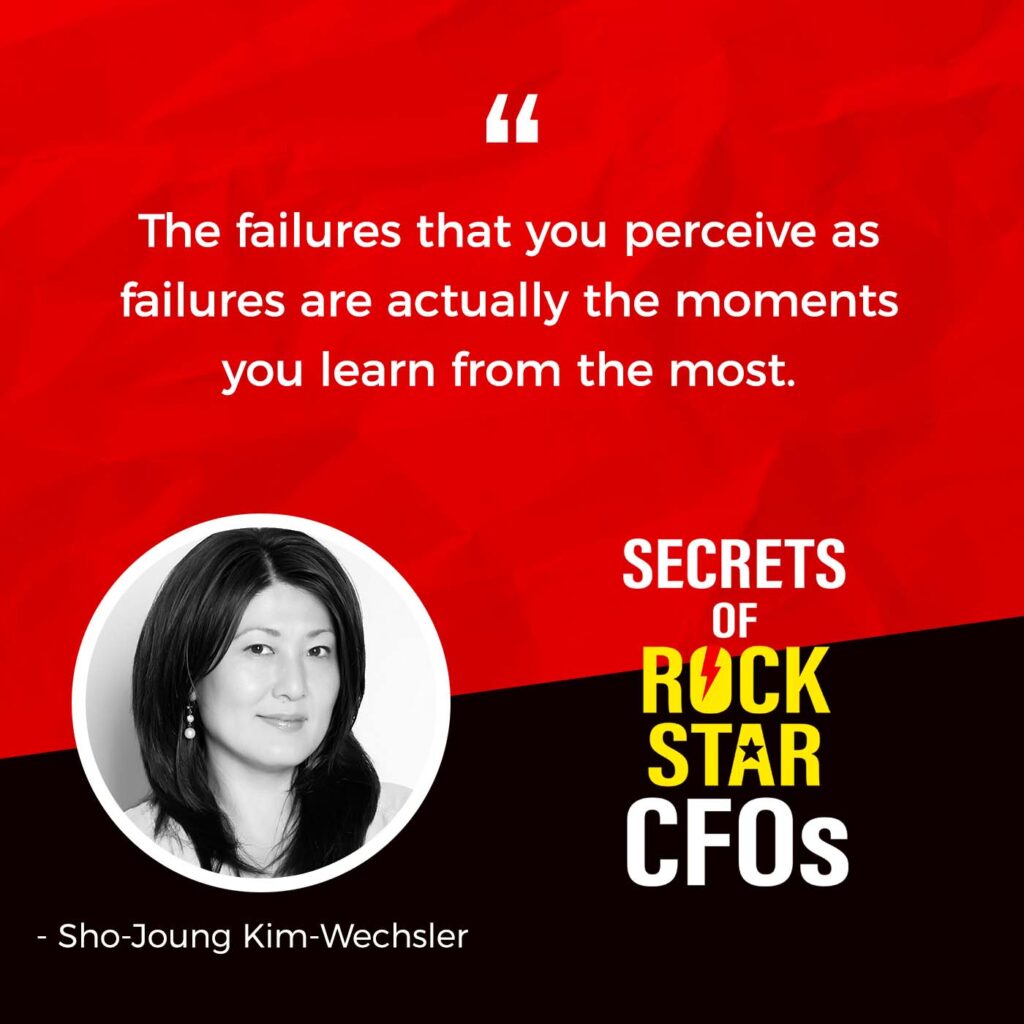
As an artist, you constantly have to think about creative concepts and what do you want to accomplish. What’s your vision? What medium to use? How to present it and how to sell it to an audience? In many ways, this is similar to a startup founder. You spend a lot of time with yourself and oftentimes against the odds and skepticism and critique of everybody else around you who’s not doing what you’re doing.
I think because of that lesson learned in these last couple of years of being a focused entrepreneur, I realized that there are so many things about what it means to being yourself and to follow your vision and to follow your instinct. I learned that this is the only way for me at this moment, and also for this company to go. No matter the perspectives, there are so many that get shared with you. There are different agendas, thoughts and whatever the viewpoints are.
There’s only a limited amount of that that’s actually relevant for you, that’s actually beneficial for you. You, as a person, as an entrepreneur, you have to come to terms very quickly with who you are because if you are insecure, if you don’t know which direction, you follow a path that is in other people’s interest, but that is not necessarily the intention and the agenda and your vision of your company.
That’s a great segue to talking about XVERSO. At the risk of the most obvious and clichéd question I might ask during the course of this interview, what inspired you to create XVERSO? How is it different from other digital art marketplaces?
XVERSO was the continuation of the art fair we created in Silicon Valley and San Francisco at the Palace of Art. At the time, I wanted to create something that was not your standard art fair. I wanted to have something that has the combination of physical art, and digital art but also experiences. For example, we had a huge speaker conference with music, but we also had a lot of digital art and different types of digital art projects that the world has never seen before.
Porsche and California School of Arts, who I partnered with, and it would basically project out sound and colors onto a Porsche. That was fun. We had a virtual reality garden, a sculpture garden with sound and smell. This was one of the first ones and a lot of projections. It was so interesting to showcase these innovations that were not from traditional artists in the sense of the traditional art world but engineers and a lot of different types of professions. It was fantastic.
To me, it was very clear that this would be the future of where things are going. Based upon all these experiences that we had and all the learnings and the successes and the failures, we created XVERSO because we wanted to bring that across this excitement for digital art, for community, for interaction and anything that’s actually great about art and the art world into a new type of platform such as XVERSO.
How are we different? I think we’re different because we’re focusing on premium artists, so not everybody can join us. We’re curating the artists very carefully, we’re curating the artworks very carefully. We’re also different because we already have this existing big community globally of ad lovers and ad enthusiasts. We are continuously showing incredibly unique works that are not available anywhere else.
That’s a great position to be in. Your background in finance and business, did that influence your approach to running XVERSO? I have to think someone without your business pedigree might tackle it a little differently.
I think it’s a good point. It’s positive and it’s also negative depending on the situation, I guess like everything is in life. The negative is sometimes, as a finance and accounting professional, as you know, you’re focused on risk aversion. The CEO goes around and has all the crazy ideas. You have an entire operation execution team that needs to ensure that it works and the finance person has to ensure that the numbers work out. You’re naturally professionally trained to calculate risks and ensure that nothing crazy is being done.
As an entrepreneur, you sometimes have to take crazy risks. You need to be aware of that. That was a huge change in approach because I was trained to fear risks, be careful about them and ensure they’re legally set and financially set. Now you don’t have that safety net at all. That was a little bit harder. Aside from the network, etc., I think what is helpful is obviously going through a problem from multiple dimensions. Like not only looking at it from a one-sided approach, which you see a lot in a lot of companies.
This is more around what it means from a product perspective. What does it mean from a marketing perspective? Also, what does it mean from an accounting, finance and legal perspective? We used to joke in our profession, “This person or that person is a walking lawsuit.” This is always a joke in finance. When I say that, people don’t think it’s funny, but in finance, people always think it’s funny. When you make decisions, you’re like, “That might be pretty bad. Don’t do that. This could have like a lot of legal implications.” From that perspective, it does help.
Interesting. It is fundamentally a business, but it’s one that evolves around art. How do you balance the artistic and financial aspects of the platform in a way that’s appealing to art enthusiasts, artists themselves and investors? That’s going to be a tricky juggling act, to say the least, right?
It is a tricky juggling act. First of all, I want to say some things. Number one, I didn’t know, Jack, and I’m not sure if you are aware, but obviously, the majority of the GDP in the United States is driven by small businesses. I did not know that. When I saw the numbers, I was like, “There’s so many of me out here and they’re very successful.”
There’s only one you, but yes, I know you mean.
I think small businesses and entrepreneurship are actually quite common here. From that perspective, it is something I’m learning every day. I think I understand why startups fail. I feel like we could have failed so many times and it’s the juggling elements, different interests, but at the same time always staying focused. Obviously, as the founder of a company, you’re the driver of the machine.
If you’re not motivated or you don’t want to do things or you’re not pushing things forward, it’s not moving anywhere. I think being able to juggle all those things without a safety net, a big admin arm that supports you or big budgets that support you. It’s tough. I had to learn that. I’m still learning it. Sometimes I’m good at it. Sometimes I’m bad at it. I would say right now, I’m more in the medium range. Let’s put it this way.
Everything’s a learning curve. I’m sure you’ll master it in time, but I have a question because we probably both struggle with this, and it’s the same thing for both of us. Whether you want to be or not, you’re the face of XVERSO, in the same way, I’m the face of the CFO Leadership Council. How do you deal with that? From what I know about you, you’re a humble person, and does that put a lot of pressure on you?
It did, actually. It was funny because we were looking for our first PR agencies because we needed to create PR stories, etc., and I was asking my team members if they could be the face. That was completely rejected because people were like, nobody cares about what X, Y, Z says; it’s important that the founder is in front of things. That was hard for me. It still is, but I’m more used to it. As you can see on my website, there’s an About page. My face is on it. It was rough. I don’t like to draw attention to myself. This is something that I do not enjoy that much.
What are the trends that are coming up in digital art and NFTs that excite you the most and maybe worry you the most, too?
It’s interesting because I don’t feel like I’m part of the NFT community, but in a weird way, I am. I’m part of Web3, but I’m also part of Web2, I’m part of the old art industry, but I’m also part of the new art industry. I’m like swimming around and all these different types of genres, but what we are saying and what I’m seeing is a lot of obviously there was a big hype, and in 2019, 2020, 2021 around NFTs and a lot of big values and now they’re not valued anymore.
Also, when you think about the percentages of increases and decreases, it’s almost like, “Where’s this coming from?” There was a lot of hype, I think, which is interesting. I sometimes had the feeling that we’re like in 2001 when the internet was totally hyped, right before the bubble burst. It felt like that. I think now is a good time when the true challenge is starting to show. I’m seeing a lot of incredibly good artists.
I’m so excited to actually collaborate with them and the quality of the work is increasing big time. After the hype, I think there’s a lot of focus on people wanting to collect beautiful art, but they also don’t want to lose money. It would make sense because if you spent that much money, there’s also the same risk for physical art. Generally, if you purchase a piece of art and you spend a lot of money on it, you want to maintain at least its value, even though you have a strong emotional connection.
I think there’s a lot of focus on value and beauty, but also, there’s not a trend that concerns me. I know everybody is talking about AI. Since moving to Silicon Valley, AI has been a big topic in everything. People were talking about flying cabs, which didn’t happen. My AI robot breaks down every two months, and I gave up now and now I have this old-school vacuum cleaner. There were all these scenarios like we’re going to be in The Matrix, and it doesn’t happen so fast.
Honestly, I think yes, technology is moving fast, but it still takes a very long time generally. I’m not as afraid of artificial intelligence as other people are. Actually, as a matter of fact, many of my artists work with AI, but in a different level way. It’s not a prompt creating works, but it’s creating their own algorithms to create works that are incredibly unique. I think that with technology innovation, there are obviously some people who will lose, and some people will win as always. I see a lot of positive coming in because the artists are starting to embrace new innovation big time and become very creative and create new forms of art with it.
Now, technology is everything. How is XVERSO leveraging technology to enhance the experience both for artists and collectors?
First of all, we make it very easy to purchase the art and to also explore the art. I think we’re constantly improving as well. We haven’t been around that long, but we’re learning a lot from the feedback we’re doing. Obviously, when you’re online, you can access the art 24/7. There’s not a store that has opening hours. We are there. You can basically experience digital art 24/7 with us.
We made blockchain very simple. Why did we choose blockchain? I felt like it created a solution to a lot of problems that do exist in the other world. I don’t know if some of the statistics, but there is an estimate and survey around 70 percent to 80 percent of all the art in museums—please don’t kill me, museum people—are not real or have been looted. Provenance is a huge problem for art because you might have a certificate on paper, but that’s going to disappear over time and it becomes more complicated the older the work is and if the artist is dead.
The nature of artists is that if the artist is dead and was already famous in his lifetime, the work usually becomes even more valuable. Age matters. Technology can solve this because once it’s certified in the blockchain, it’s indestructible. It’s evidence that can never ever go away. Unless, of course, we don’t have blockchain and technology anymore. Aside from that, it would probably exist as long as the technology exists. It creates this huge problem around provenance and authenticity.
The other big innovation of blockchain is the fact that artists can now obtain royalties. In the past, physical artists oftentimes started off their careers, they’re unknown, and they were happy when they sold their works and then happens to be that some savvy art collectors saw the work and realized, “This person is a genius and it’s going to become very famous.” Later on, sells the work for millions in an auction, the artist will not get a cut on this. It’s different than, say, the music industry because you have obviously royalties in the music industry, but you didn’t have that in the traditional visual art industry. Technology now enables that because through blockchain, you can define the royalty system, which we also have done, so we give 20 percent back to our artists.
It’s interesting because when I published the book it was similar. Until relatively recently, if you wanted to publish a book, there were 37 people along the way getting us a slice of the pie. But I went through a self-publishing tool and once I wrote it, within about a number of hours, I was a published author. They made it very easy. That company gets a very modest royalty off everything I sell through their platform. Other than that, it’s the early stages of it. Traditional publishing companies have to be a little bit afraid of that model.
I think anyone in the creative field, but it’s also a powerful tool for anything that needs a permanent ledger, I think, for accounting or real estate. I mean, the list goes on and on. I think because technology is still young and greed is always a factor in humanity, unfortunately. There was a big greed factor that created all these frauds and bad news. People are obviously afraid with new technology because they don’t understand it. On top of it, you have the magnitude of fraud and bad actors. It takes away from the innovation and actually the positive that you can do with this technology. For us, it’s important that we utilize it in a positive way for things that have an impact on artists and for our industry.
I want to get back to your background a little bit. This is one of those things that I scratched my head. I’m like, Did I take these notes accurately?” Your next startup is going to be focused on cats. Did I get that right? Was I smoking something?
You’re now giving away my secret.
I’m sorry. Do we need to cut that out?
No, we can talk about it. I have big plans after XVERSO. I have to first build it and make it big. I’m very focused on alternative treatments. I have a story behind that because I grew up in a household that was very medical-focused. My parents were doctors and I was surrounded by very sick or dead people. It sounds very horrible, but this is the way I grew up.
My father was an emergency surgeon. Oftentimes, I wouldn’t see him for many days. He was like on the highway putting things together from a human that got killed, getting the arms and the legs and what have you. Obviously, a very medical, a very hands-on operational perspective, I would say, my father has. He always says very pragmatically that if he hadn’t had the opportunity of putting people together, he would probably have been like a plumber or like an architect, something like that or a construction worker.
It’s like a very hands-on operational execution perspective, without any sense of beauty or aesthetics or emotional concepts. I was always extremely skeptical. I think it’s my nature, but I always had a lot of questions. We had all these magazines of how-to medical journals, etc., but then we also had a small amount of alternative medicine journals at home.
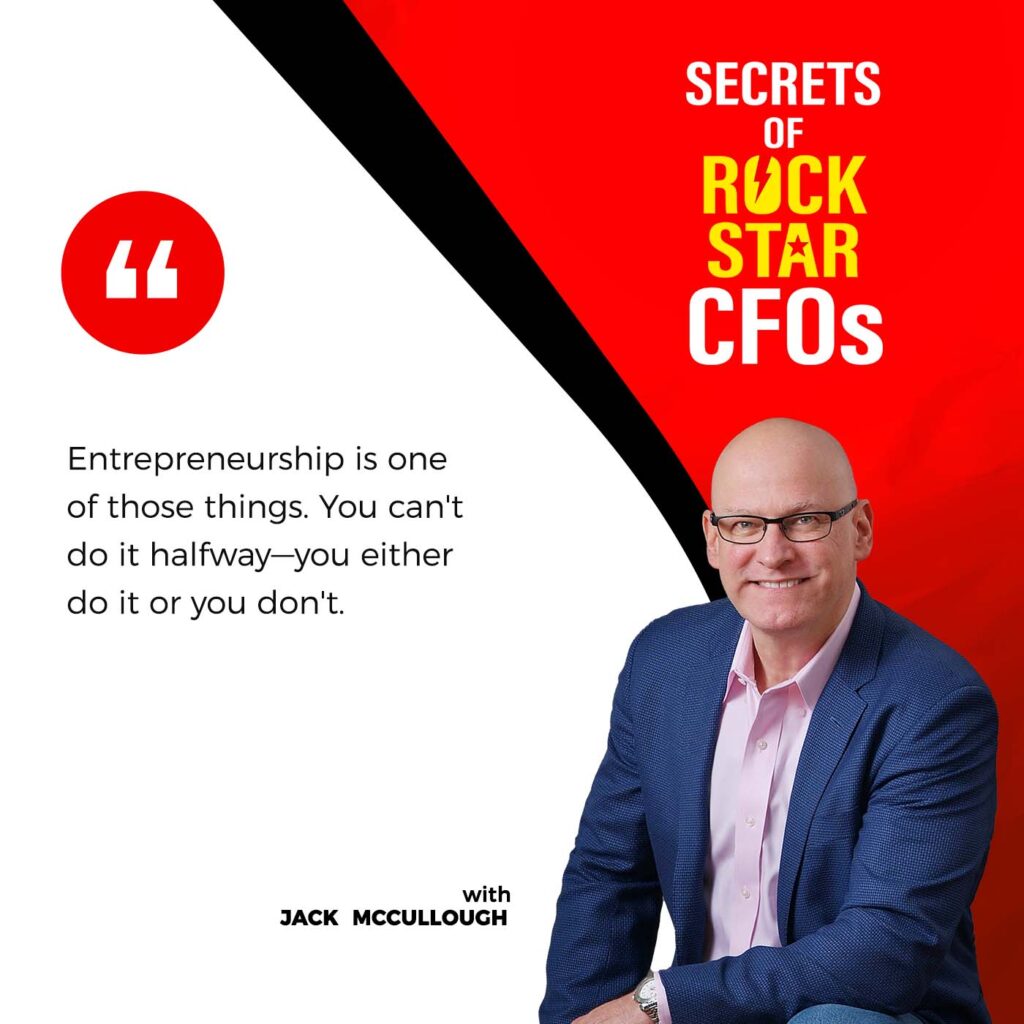
The only person who ever read those was me. I asked the question. I said, “Instead of pumping people up with all this chemical stuff, there’s all this knowledge, this wisdom of these ancient tribes and the shamans of how to work on different illnesses with plants.” My family was over there. “She’s crazy. She’s like on this voodoo crazy, whatever hippie-dippy, whatever they call it, trips. Let’s not even talk to her. She’s not even being scientific.”
I think now there’s a lot of knowledge around science that has developed as well. We’re learning so much about us humans as a species, but we’re also learning so much about the behavior of cats or other animals. AI has created a program on how to communicate with whales. Eventually, we will have an opportunity to understand whales once they are able to translate it. I think we’re realizing there is so much more to life and species that science cannot simply explain.
I think one of the interesting things for me are alternative treatments and learning about plants and different types of ingredients. It’s so interesting to me. I feel very passionate about this, and obviously, it’s a very hypothetical construct right now, but it’s something I spend my time with, the spare time I have. It’s very interesting to me. I want to explore that.
There was another, similarly to art, this was a topic that I was very interested in because I saw a lot of results with it. I experimented with my cats, but they’re doing well. They’re healthy. I saw the results and I thought this was very positive. Maybe there are way more ways than we know than traditional medicine or the pharmaceutical industry prescribes you to do. This is something I’m very interested in.
I cannot help but comment that we can communicate with whales because there was one of the Star Trek movies was based on that. They had to go back in time to the 1980s. For some reason, they had to talk to a humpback whale. I forget the premise of what that was, but yeah. They could have used your technology had they known about it.
Unfortunately, it’s not my technology. It’s good. It’s some of the best AI engineers right now. They were talking about this, but it’s interesting. I guess everything a human mind can imagine can become a reality in many ways.
I like to talk a little about fun facts for people. What’s a fun fact, talent or passion that people might be surprised about you?
I think one of the funny things was I was a singer in a punk band.
Tell us about that. You’re not doing it anymore, obviously.
No, but it was at the time when we were growing up as teenagers. Actually, I was supposed to talk about this because we had a big reunion with all my friends from high school. We have like this chat and they started sharing all these pictures from us when we were young and teenagers. A lot of the things I forgot about. We were extremely creative. We had a group of friends where many of them are artists and designers, by the way.
We always had like, created a lot of stories. We used photography. We created photography stories. We were all into art and music. This was important. We grew up in a small town that nobody knows, except for people from this town. It’s at the Dutch border. It’s Germany, but it looks like the Netherlands. There’s absolutely nothing. There are some forests, some farms, and it was a beautiful upbringing because there wasn’t anything. We had to create something.
It was natural for us that everybody would be into drawing, painting, music, into acting. We did a lot of creative stuff. I was always constantly busy. It happened to be there was this band, it was funny, it was a great setup and they were looking for a singer. I said, “Let’s try it out.” I was a singer there.
How about that? Was it original music or did you cover like the Clash and The Ramones and other punk?
We had some cover songs as well, but we did our own songs. It was funny because the drummer was a songwriter and he broke up with his girlfriend, who was now the girlfriend of the bass guitar player. I was singing his songs about the breakup while the new boyfriend was also in the band. This was a very interesting dynamic.
You artsy folks, the things you get yourself into. Can I persuade you to sing a couple of bars from Rapture by Blondie?
No, not now. Next time when we meet. I’ll take you to karaoke.
That sounds good. I often close this by asking folks for their advice for the next generation of CFOs. I want to put a little different twist on that. What’s your advice for people who are CFOs or in similar professions, I don’t want to say escape from it, but it’s not their passion, they want to pursue their passion much like you did. Do you have any advice for people to do that? CFO is a great job. You’re well respected, it pays well, it’s interesting work, you work with good people, and yet you’re much happier for leaving it to do your passion. What’s your advice for people to do it?
I think this is sad because it brings all these memories and it also brings at the time when I decided I was going to follow a separate route, people, my friends thought, “She’s going to be homeless.” This is also nice because they treated me to nice dinners, got me some nice concert tickets, etc., but they thought, “She’s falling off the wheelhouse and she’s going to be on the streets.” It was funny to see. It was interesting to see all these fears of people around you, yes, of course, the reality is you have to pay your bills, you have duties, you have responsibilities, that’s all part of it.
At the same time, when you do such a big career switch, people do project out their own fears on you, which happens a lot. You are already endowed. It wasn’t like, “Yes, easily let me like to give up my well-paying job. My 500 assistants and all the good stuff.” Five hundred is exaggerated, of course, but the good life is in quotation marks. I think you have to do it. You’ve got to make a plan a little bit around financing and how to finance stuff and how to pay your bills, but ultimately, you have to do it because there is no scenario that you can go through in terms of probability that will prepare you for what’s coming your way, because it’s all unknown. It’s unknown and you have to go for it.
It is. Entrepreneurship is one of those things you cannot do it halfway. You either do it or you don’t do it for most people.
Absolutely, you either do it or you don’t. I think, in general, it has nothing to do with CFOs who want to leave their job and follow their passion. I think it’s for everybody, but I think it’s important to try not to make decisions based on fears. I think that is super important for every human. If you’re afraid and you’re not doing the things that you could potentially do because you’re afraid, I think that’s a very sad life.
It’s a wasted life in my perspective because everyone has a reason to be here and should follow what they love. I think that fear is such a hindering factor for so many reasons, including bad decisions and unfilled with lives, unhappy lives. Everybody has fears, I have fears, you have fears, but to take the fear as part of the process, accept it and utilize it as something to overcome.
This has been a wonderful interview. I know you’ve got a lot going on, so I thank you for making the time for it. I want to give you the last word, if there’s anything you’d like to say.
Jack, thank you so much. First of all, I enjoyed this interview so much. Thank you so much for inviting me. Obviously, you and your team are fantastic. Keep up the great work. I love what you’re doing. Hopefully, we’re going to meet again soon.
I would like that very much. Thanks so much, Sho.
Thank you.

